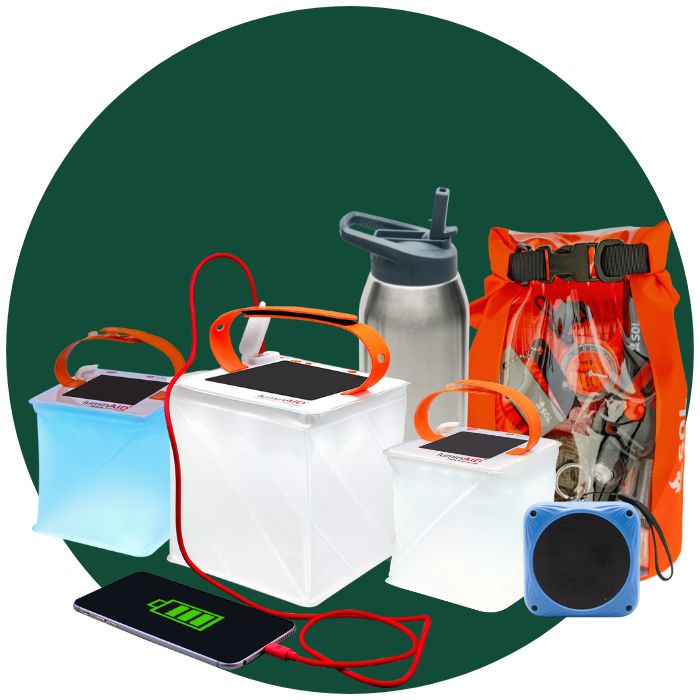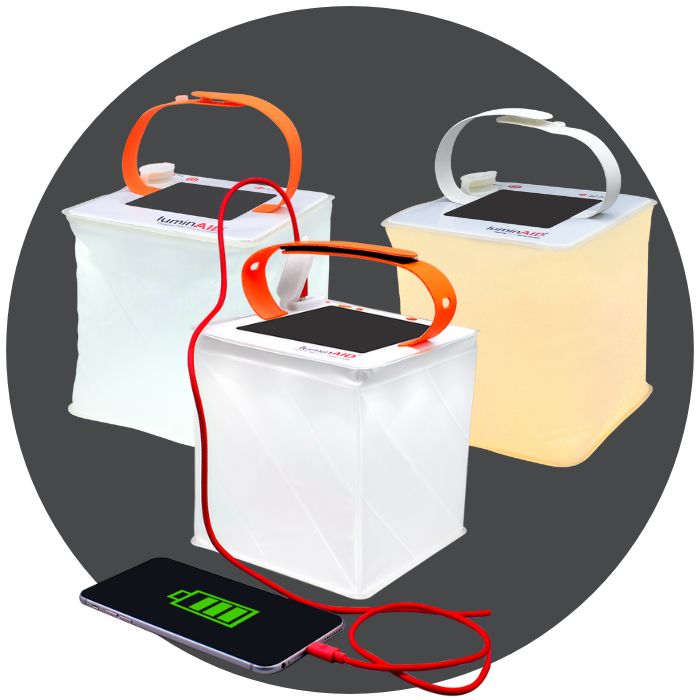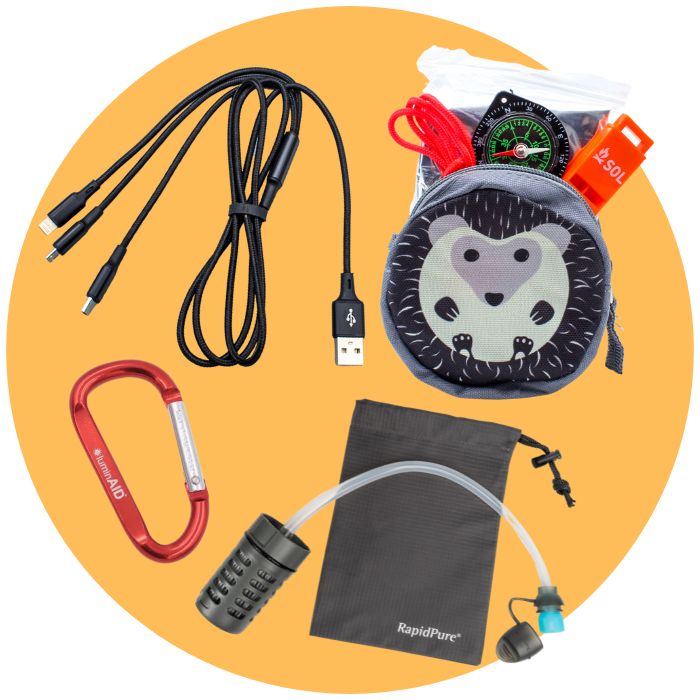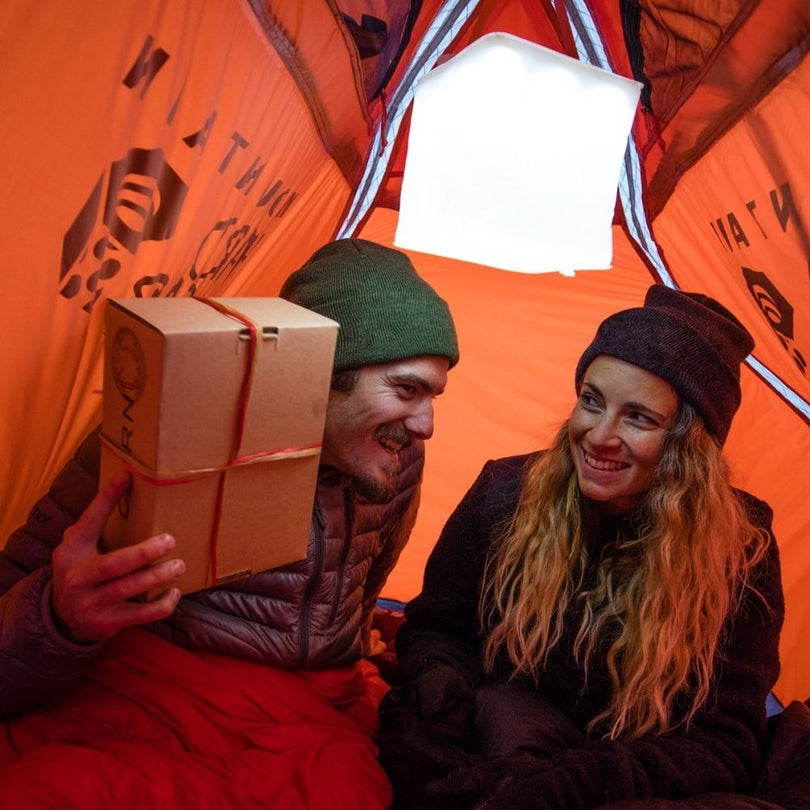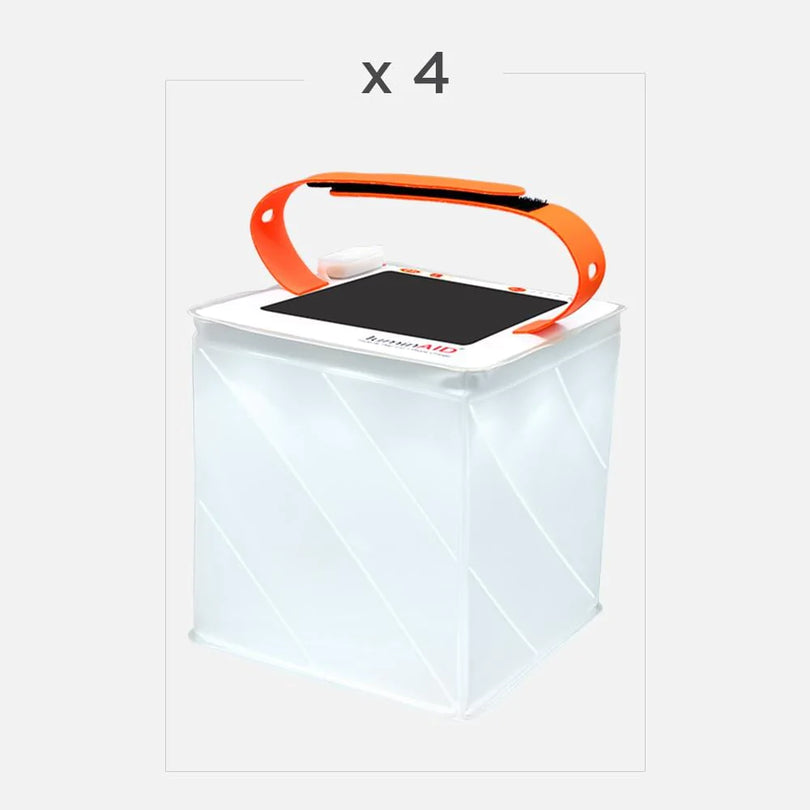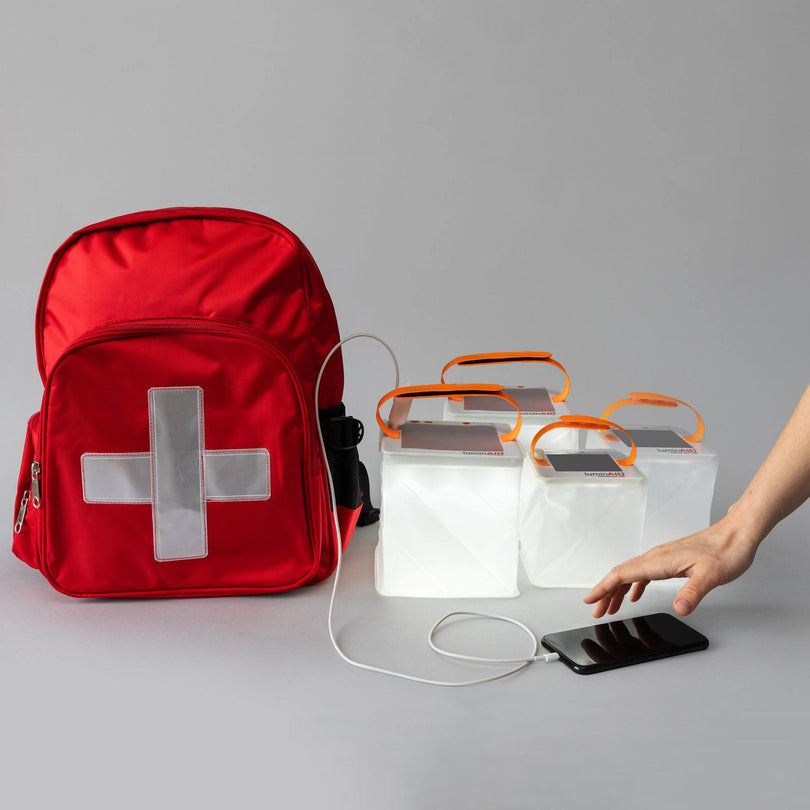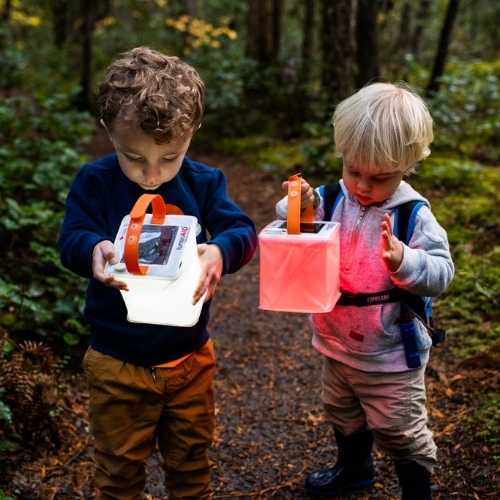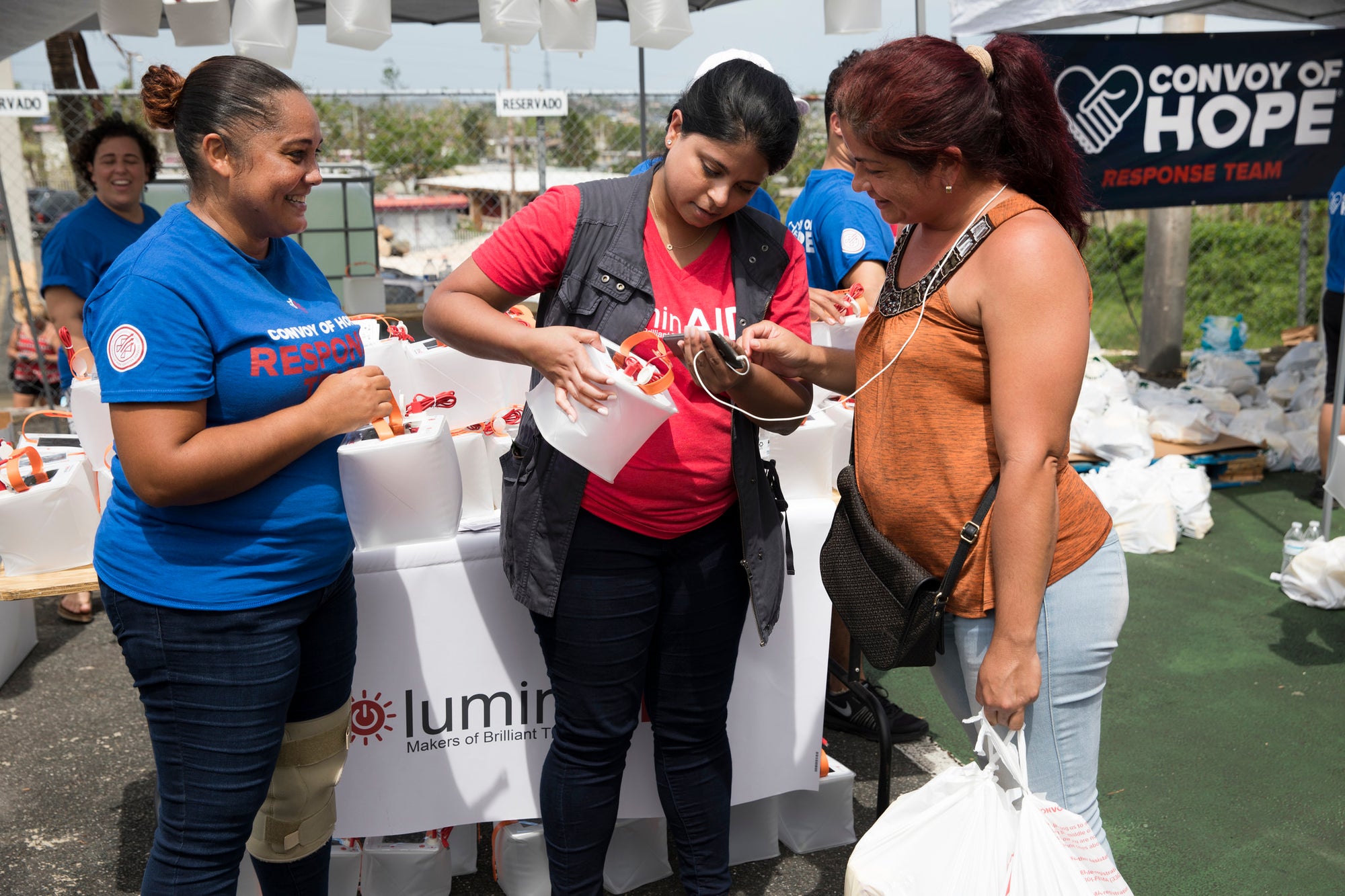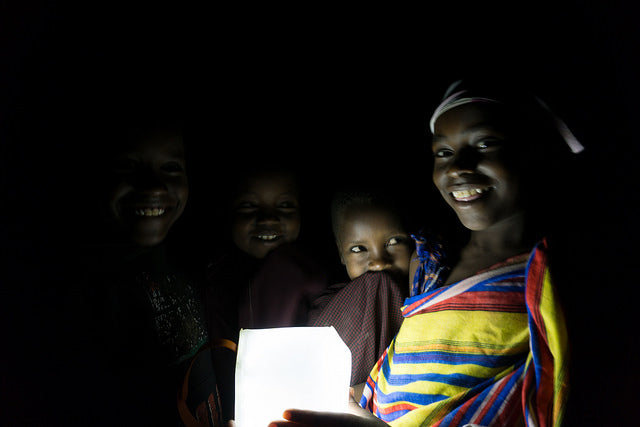Inefficient and unsafe lights are not only dangerous for human health, but for the health of the Earth as well. Greenhouse-gas emissions produced by unsafe light sources (including biofuels, disposable batteries, kerosene, and propane) are roughly equivalent to the emissions from 30 million American cars. Refugees and communities displaced by natural disasters are more likely to rely on kerosene and biofuels, endangering their own health and the health of their local environment.
When solar lights and phone chargers are deployed after disasters to families who are displaced, they offer an alternative to these harmful alternatives. Solar-powered lighting requires no biofuel and produces no fumes and no CO2 during use. Solar is a naturally renewable energy, and relying on it for basic energy needs can improve environmental as well as household air quality—improving air quality for individuals and the global community.
 Solar lanterns reduce dependence on fuelwood, reduces deforestation after disasters or displacement
Solar lanterns reduce dependence on fuelwood, reduces deforestation after disasters or displacement
Deforestation is another worrisome environmental outcome of energy poverty around the world. In communities without electrical access, families often depend on wood gathered or harvested from surrounding areas in order to light, heat, and cook in their homes or shelters. This dependence on fuelwood can be particularly detrimental in refugee and displaced person camps, where in some cases there is not viable wood found within 15km from the camps. Solar power can reduce dependence on fuelwood and therefore reduce the environmental cost to areas with refugee or displaced person camps.
When families have access to solar lanterns and chargers, they can reduce the time needed to gather fuelwood, while also reducing the environmental impact of displacement. Communities and their surrounding environments are more able to recover when renewable solar energy is an accessible resource for them.

With solar-power LuminAID lights and chargers, those without electricity can rely less on harmful kerosene and fuelwood
Safe and clean lighting is a key step towards meeting the United Nations Sustainable Development Goals. One of these goals is to ensure universal access to clean household energy by 2030. Improving household energy is an important step towards reducing the production of polluting air contaminants and curbing atmospheric warming. Solar lighting systems help alleviate costs to human health, resources, and ecosystems incurred by inefficient fuels often used in low- and middle-income countries.
It's a way to contribute to a brighter future for communities and their local environments.
Sources
Evan Mills, "Can technology free developing countries from light poverty?" The Guardian, July 30, 2015, accessed July 23, 2017, https://www.theguardian.com/global-development-professionals-network/2015/jul/30/can-technology-free-developing-countries-from-light-poverty.
Mark Van Dorp, Dealing with energy needs in humanitarian crisis response operations, report, September 2009, accessed July 21, 2017, http://www.envirosecurity.org/fuel/Quick_Scan_FUEL_project.pdf, 6.
World Health Organization (WHO). Burning Opportunity: Clean Household Energy for Health, Sustainable Development, and Wellbeing of Women and Children. 2016.

